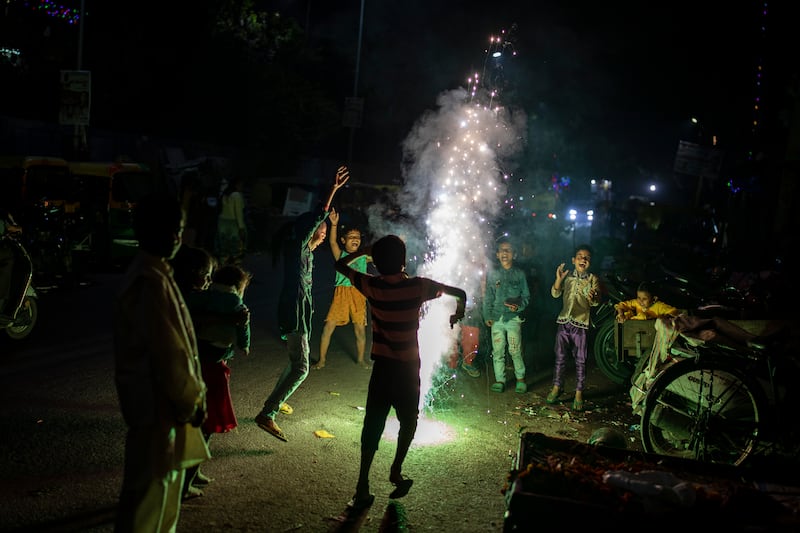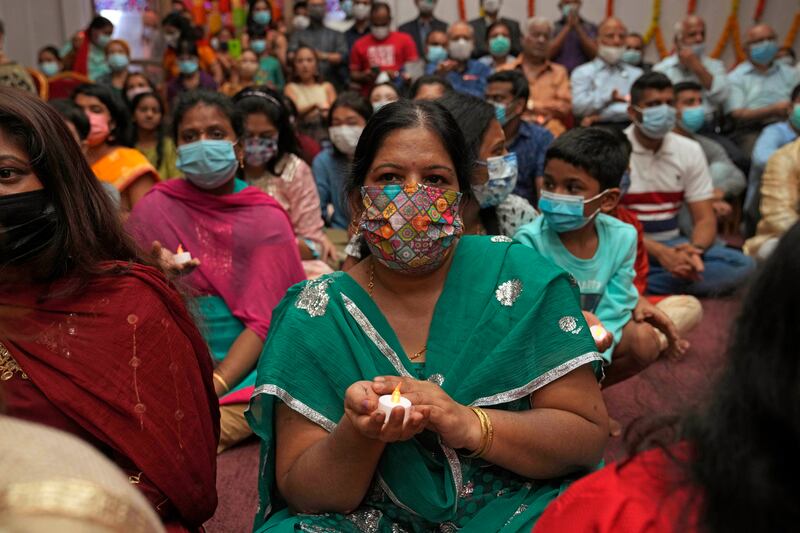To many Americans — especially those unfamiliar with the Hindu holiday of Diwali — lighting candles in late fall might bring to mind the Jewish holiday of Hanukkah.
While the two celebrations have much in common — among other things, they’re both referred to as the “Festival of Lights”; they both commemorate the triumph of good over evil; and they both last about a week — Diwali is distinct.
Unlike Hanukkah, which is a relatively minor holiday in the Jewish year, Diwali is India’s biggest holiday. Some liken it to Christmas, not just because of its significance but because it’s marked by non-Hindus, as well.
Five days long, Diwali is celebrated by multiple religious groups based in India and Southeast Asia, including Jains, Sikhs and some Buddhists. (In Nepal, the holiday is known as Tihar; Thailand’s late fall, candle-lighting holiday Loy Krathong probably owes its origins to Diwali, too, according to Fodor’s Travel and others).
However, the holiday means something very different to each of these groups. Even among Hindus, there are various interpretations of what Diwali is actually marking.

The version of the holiday that someone celebrates is often dictated by region. For example, many Hindus in northern India believe Diwali celebrates the return of Rama and Sita to Ayodhya after a 14-year exile, according to the Hindu American Foundation. Hindus in the south of the country, on the other hand, see Diwali as a commemoration of the day that Krishna defeated Narakarusa, a demon who held 16,000 girls captive.
The Sikh community observes the holiday by celebrating the release of the guru Hargobind Singh, who was “unjustly imprisoned,” wrote Simran Jeet Singh for Religion News Service in 2019. He explained that Sikhs call the occasion the Day of Liberation.
Regardless of the reveler’s religion or location, there are common themes throughout all of these stories: the victory of good over evil and light over dark, and liberation.
Diwali, which takes its name from deepavali, a Sanskrit word that can be translated as “row of lights” or “row of clay lamps,” also offers an opportunity for introspection — for many, it is a time to reflect upon and cultivate one’s inner light.
New beginnings is a theme, as well. In some parts of India, Diwali corresponds with a new year, so it’s common to hear people in those places wishing each other not just a Happy Diwali but a Happy New Year.

In general, Diwali is celebrated the same way people all over the world mark other important holidays: by cleaning the house, buying and wearing nice clothes, praying, gathering with family and friends, exchanging gifts and by eating and sharing food.
But with Diwali, each of the five days is marked a bit differently. On the first, people typically clean their houses — an action thought to invite the Hindu goddess of fortune, Lakshmi. Some also engage in acts of service or charity, according to the Hindu American Foundation.
For the second day, people will decorate by arranging clay lamps outside their homes and by making rangoli, which are beautiful arrangements of colored powder or sand.
On the third day, many don new clothes and go to temple to pray; they also gather with friends and family, continuing to indulge in the delicious symbolic foods eaten throughout the festival, exchange gifts and enjoy fireworks.
Diwali also includes Bhai Dooj, or brother’s day, when brothers are supposed to bring a gift to their sisters; in turn, sisters pray for their brothers. (To those who are familiar with Islam, this practice might remind of the Muslim tradition of men visiting their female relatives during Eid al Fitr).
Happy Diwali!


